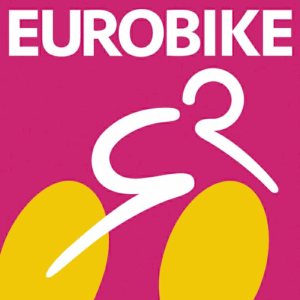During the pandemic the only way for the bicycle industry in Europe seemed to be up. But in the summer of 2023 the mood has changed. Inflation has hurt consumer sentiment, and overstock is the new normal within the industry. At the state of the markets press conference, a high-profile panel weighed in on the current situation – and was remarkably upbeat.

As an introduction Manuele Marsilio, managing director of Conebi (Confederation of the European Bicycle Industry), presented the most important numbers about Europe’s bicycle market in 2022. Like the national markets analyzed in detail in yesterday’s issue of the Eurobike Show Daily, the overall bicycle market in the 27 EU member states and the UK contracted by 9.1 percent year on year to 20.2 million units. E-bikes bucked this trend, growing by 8.6 percent to 5.5 million units. The resulting turnover of the entire bicycle market grew by 7.4 percent to €21.2 billion. Keep in mind that some of this growth has been due to inflation. At the same time investment in Europe’s bicycle industry grew by 14.3 percent to €2 billion, reflecting the wide-spread expectation for the bicycle market to return to robust growth.
Kevin Mayne as the CEO of Cycling Industries Europe (CIE) remains optimistic as well: “We see a yearly growth in cyclists by 7.7 percent, also thanks to bike sharing offerings. Nothing has changed regarding the benefits of cycling, and governments at all levels – EU, national, municipal and regional – are investing in bicycle-friendly infrastructure. The cyclists we created during the pandemic continue to ride, and as more and more people return to the workplace, the number of daily cyclists is increasing even further.” While the growth numbers may not be as spectacular as they were amidst the pandemic, they reflect real and sustainable market development, and according to Mayne many other industries are looking at cycling enviously.
Representing Taiwan’s bicycle industry on the podium, KMC Global GmbH’s managing director Deborah Wu stressed the importance of producing closer to the markets as one of the lessons from the supply chain disruptions that plagued the bicycle industry throughout the pandemic. “At KMC we currently see e-mobility and ESG-related issues as the two major trends in the industry. Many companies from Asia are currently investing in Europe as part of a green reshoring push, increasing their footprint in Europe – from sales offices to service centers and finally manufacturing. Of course, this means overcoming certain barriers in terms of language and culture, but the importance of the European market is well-worth the effort.”
When asked about how the current situation of the industry had impacted the booking for Eurobike, fairnamic managing director Stefan Reisinger stated: “Since the industry has professionalized a lot in recent years, the current downturn in demand was not reflected in the bookings. The few exhibitors we may have lost were easily outweighed by the additional exhibitors that could participate at the show since all travel restrictions have been lifted. Of course, widening the scope from bicycles to e-mobility also helped to reach the record number of more than 1,900 exhibitors, and we may well see well-known names from the automotive industry join Eurobike in 2024 – provided that their models running on combustion engines stay out of the fair grounds.”
As for the further development of the markets in Europe, Conebi’s Manuele Marsilio stressed the importance of setting up favorable and homogenous standards for speed pedelecs and cargo bikes across Europe. And according to Kevin Mayne, the main obstacle to return to the kind of dynamic growth of the e-bike market in particular may be a bottleneck in batteries: “The raw materials are controlled by a few, the cells are mostly sourced from Asia and there’s fierce competition with other industries to get hold of these cells.” As for certifying the carbon footprint of its production, Kevin Mayne accepted that this causes additional administrative work, but he also stressed that the bicycle industry is highly likely to come out as the leader once those numbers are being published.



